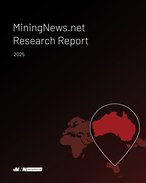MiningNews.net is making some of its most important coverage of the COVID-19 pandemic freely available to readers. For more coverage, please see our COVID-19 hub. To subscribe to MiningNews.net, click here.
This week, the Central Land Council asked for explorers to suspend all non-essential visits to areas in in the Northern Territory, and many of the other land councils across Australia are restricting non-essential travel through their areas.
The thrust is less on visitors to remote communities, but in the risks on inter-town travel, as travel to larger centres may introduce the virus into small communities that would be quickly overwhelmed.
The National Community Controlled Health Organisations CEO Pat Turner told the ABC there would be "absolute devastation" if COVID-19 got into Aboriginal communities.
NACCHO, which represents 140 Indigenous health services around Australia, wants the NT, Central Australia, the Kimberley and Cape York designated as COVID-19 special control areas.
It has asked the Commonwealth to call out the army and police to monitor the movement of people in and out of these areas.
During the 2009 H1N1 swine flu outbreak, Aboriginal and Torres Strait Islander people made up 11% of all identified cases, 20% of hospitalisations and 13% of deaths.
The restrictions don't yet mean a total shutdown.
Castile Resources said it would cease all non-essential travel to the NT and abide by the CLC's request, but that its exploration program, due to begin next month, would be delayed. It will continue work on the Rover 1 prefeasibility study by using local labour and contractors in the township of Tennant Creek and consultants in Perth.
MNN reached out to many of Australia's indigenous councils yesterday, and all that could be contacted confirmed some forms of restrictions were in place.
The Northern Land Council is suspending permits for non-essential permits into its areas, and it is seeking to restrict access to the Kakadu National Park, which could have an impact on Energy Resources of Australia's long-term schedule to close down and rehabilitate the Ranger uranium mine by its Commonwealth-imposed deadline.
In South Australia's Anangu Pitjantjatjara Yankunytjatjara lands, which offer potential rich pickings for explorers, and hosts part of Metals X's Wingellina project.
A spokesperson told MNN only essential workers would be allowed in.
Exploration was not considered an essential service. It was not being specifically targeted, but the issue of permits would be considered on a case-by-case basis.
Further east, a North Queensland Land Council spokesperson said that group was following NIAA guidance, cutting back consultations, but was not considering other restrictions at this stage.
The NQLC is the representative body covering some 411,164sq.km of land.
The Cape York Land Council is taking similar measures.
In Western Australia, traditional owners in the Pilbara are urging miners to minimise contact, and shut down heritage surveys until the coronavirus crisis has passed.
A Kimberley Land Council spokesperson told MNN said the KLC was "spreading the word" about the dangers of the virus, but that the nature of the region said closures would be on a "community by community" basis.
MNN understands Balgo and Warmun are two communities that have decided to close.
The Ngaanyatjarra Lands, which cover some 250,000sq.km across the Gibson Desert, Great Sandy Desert, Great Victoria Desert, and all of the Central Ranges within WA, have elected to restrict access to anyone who has travelled overseas, and for issue a three-day transit permit for the Great Central Road only.
Federally, all native title matters have been halted by the Federal Court until end of June.
Mining is expected to continue nationally, unless the Morrison government orders a national lockdown, something it has been loath to do.
NT chief minister Michael Gunner yesterday mused the territory could shut its borders, while today Tasmania enforced the "toughest border measures in the country", with Premier Peter Gutwein requiring all "non-essential" travellers to self-isolate for 14 days.
There are questions about whether complete bans on interstate travel would be legal.
Tasmania has had seven confirmed cases of COVID-19, the NT had one, but that was from a tourist from New South Wales, and no further cases have been reported.
There have been 565 confirmed cases of COVID-19 in Australia, with 40 new cases since yesterday, with the bulk in NSW (307), Victoria (94) and Queensland (78). There have been sixconfirmed deaths.
Across the world there have been more than 190,600 confirmed cases of COVID-19 and more than 7700 deaths.























